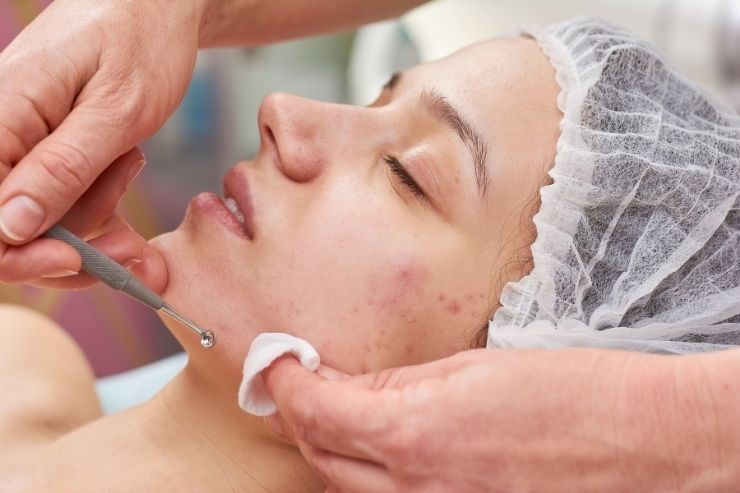
Understanding Acne
Acne can affect anyone, but it’s particularly common during adolescence due to hormonal changes. However, it can persist or even develop in adulthood, often triggered by factors like stress, hormonal imbalances, diet, and certain medications.
Types of Acne:
Blackheads and Whiteheads: These are non-inflammatory forms of acne, with blackheads being open comedones and whiteheads being closed comedones.
Papules and Pustules: These inflammatory types of acne present as small, red bumps (papules) or pus-filled lesions (pustules).
Nodules and Cysts: Severe forms of acne, nodules are large, painful lumps beneath the skin, while cysts are deep, pus-filled lesions that can lead to scarring.
Causes of Acne
Several factors contribute to the development of acne, including:
Excess Oil Production: Overactive sebaceous glands produce too much oil (sebum), which can clog pores.
Clogged Hair Follicles: When dead skin cells aren’t shed properly, they can accumulate and block hair follicles.
Bacteria: The bacteria Propionibacterium acnes can thrive in clogged follicles, leading to inflammation and infection.
Hormonal Changes: Hormonal fluctuations, especially during puberty, menstruation, pregnancy, or stress, can increase oil production.
Diet: Some studies suggest that certain foods, particularly those high in sugars and dairy, may exacerbate acne.
Medications: Certain medications, including steroids and hormone treatments, can trigger or worsen acne.
Treatment Options for Acne at PARI HOSPITAL
At PARI HOSPITAL, we offer a range of effective acne treatments tailored to your skin type and severity of acne. Our approach combines the latest in dermatological care with personalized attention to ensure the best results.
Topical Treatments:
Oral Medications:
Chemical Peels:
Laser and Light Therapies:
Extraction Procedures:
Hormonal Treatments:
Diet and Lifestyle Modifications: